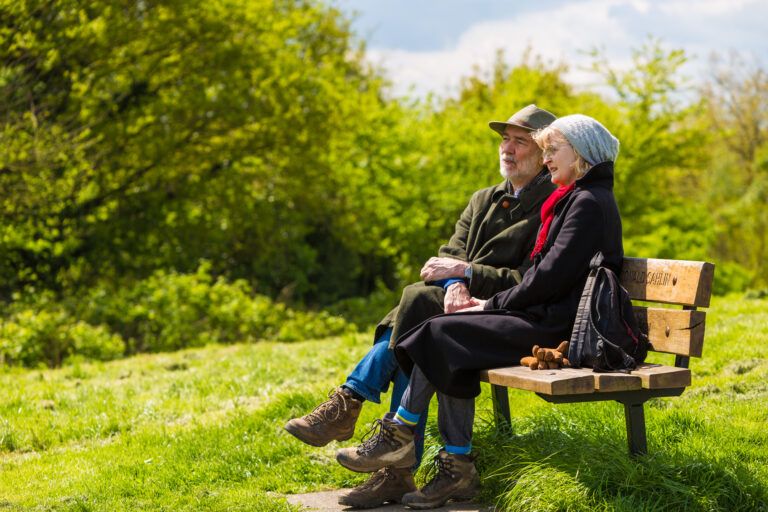Improving care and quality of life for older people
The challenge
The UK has an ageing population. Medical advances have meant that people are now living longer, although not always in good health. Many people live with increasingly complex chronic conditions and multi-morbidity. A growing proportion of the population have dementia and many of those affected require care in a care home. Whilst increasing life-expectancy is something to be celebrated, the complex health needs of our older population create a challenge for the NHS and for care homes.

Facing the challenge
UCLPartners is supporting a number of projects aimed at improving the care and quality of life for elderly people, those living in care homes and those with a number of long term chronic conditions. UCLPartners also offers a range of training aimed at staff in care homes regarding End of Life Care, dementia, and emergency care and treatment planning.
Emergency care and treatment planning
We are supporting three nursing homes in Islington to test the implementation of a Recommended Summary Plan for Emergency Care and Treatment (ReSPECT). ReSPECT is a new process which facilitates personalised conversations between health care professionals and individuals about a possible future emergency situation when a person is unable to make or express choices.
To support those working in health and social care to learn about the ReSPECT process and how it applies to their work, we have also developed an educational app, which is used by ReSPECT implementer sites across the UK. The app includes key information covering all aspects of ReSPECT, from what the process is to how to have a conversation about ReSPECT with someone. It is customisable to profession and can be used free of charge on a range of devices both on- and offline.
End of Life Care (EOLC) training
Our EOLC programme is developing and delivering innovative educational material to train clinical and non-clinical staff working in care homes to deliver excellent EOLC. We have piloted educational materials in Camden and Enfield from September 2017 to May 2018. We’ve also trained care home staff as ‘Champions’ to deliver EOLC training in their own workplaces.
Dedicated, multi-disciplinary care for residents in care homes
UCLPartners have supported ‘Health 1000’, a pilot scheme that provides residents of nursing homes with designated GP and specialist geriatrics access, within a multi-disciplinary team since inception in 2014. The scheme aims to improve residents’ experiences of care and reduce unplanned hospital admissions.
The scheme is chaired by UCLPartners’ former Chairman, Sir Cyril Chantler, and was designed by a team of experts, including UCLPartners’ Clinical Academic Lead, Professor Mike Roberts. Health 1000 supports four care homes in Barking and Dagenham and Havering and Redbridge.
Outcomes
Emergency care and treatment planning
There are now 1500 users of the ReSPECT app across the UK. Eight UK regions are now using ReSPECT with an additional ten planning to use it towards the end of 2018.
EOLC training
Take up of our EOLC materials for acute hospital and community settings has been very encouraging and the feedback from staff who have taken part in the training has been positive. Specifically:
- Our EOLC training materials have been used to deliver at least 386 training sessions in 34 organisations across London, Essex, Hertfordshire and beyond
- 2,937 staff in acute hospitals and the community have been trained using the materials
- Following training, staff have reported an overall increase in confidence of around 20%
A short educational film and accompanying resources, developed as part of the EOLC project, will be rolled out across north central and north-east London to support the development of care home staff. The resources will also be made freely available for download.
Dedicated, multi-disciplinary care for residents in care homes
As a result of the Health 1000, the care homes piloting the scheme have seen:
- A 36% reduction in emergency hospital admissions
- A 53% fall in bed days where residents were admitted to hospital
- Improved access to GPs and clinical advice for staff
On the back of the successful Health 1000 pilot, Barking and Dagenham and Havering and Redbridge plan to commission the service for all 39 nursing homes in the three boroughs by 2019.